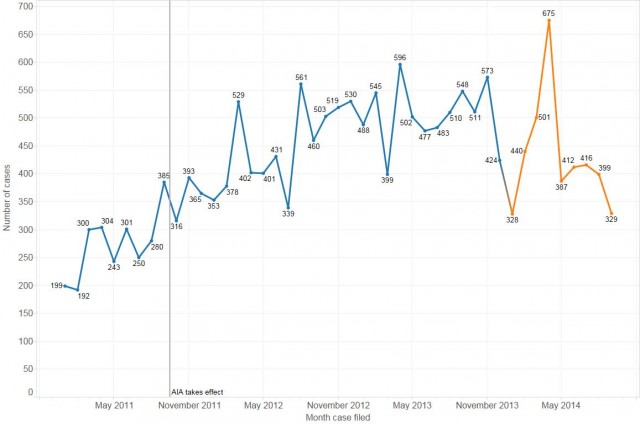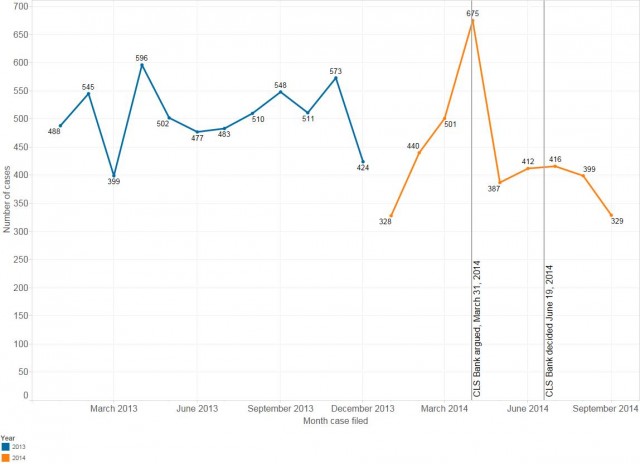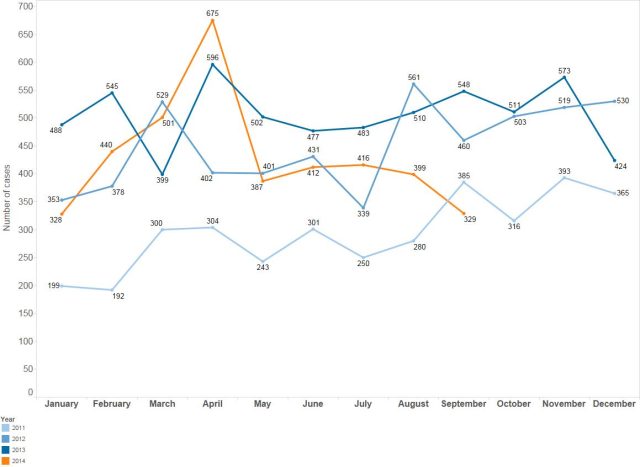
Data produced by Lex Machina shows that patent lawsuits reached a low point in September, down 40 percent from September in 2013. Last month saw fewer new patent complaints filed than any other month in recent years, going back to 2011.
The drop comes shortly after new patent rules came down from the Supreme Court. Most notably, the Alice v. CLS Bank decision made it clear that courts shouldn't accept "do it on a computer"-type patents as valid. That's resulted in nearly a dozen patents being tossed out in a short period of time, and some patent trolls with dubious patents aren't bothering to fight it out anymore.
"It is an interesting coincidence to me it lines up with Alice this way," said Brian Howard, Lex Machina's legal data scientist. "I'm not sure I can say Alice caused this, yet—but it is an interesting correlation."
It isn't just last month, either. The September slowdown follows relatively light months in May, June, July, and August. A summer "slump" in legal filings is not unusual, but even if one looks at the last five months, 2014 has had substantially fewer lawsuits than either of the past two years.

Going back to 2011, one does see fewer lawsuits, but it's not a good comparison. The America Invents Act wasn't passed until late 2011, and before that time patent holders were allowed to sue several companies—even dozens of companies—in a single suit.
Looking at the "post-AIA era," last month is a near-record low. Only one month, October 2011, saw fewer lawsuits.
April 2014 saw a huge spike of patent filings, for a remarkable reason. As Congress was debating an anti-patent-troll bill, which ultimately didn't pass, the Washington DC rumor mill suggested that the bill might backdate its patent reforms to April 24. That got patent trolls' attention, and on April 23 nearly 200 patent lawsuits were filed in a single day.

Stanford Law professor Mark Lemley, who is a co-founder of Lex Machina, was more direct about tying the recent drop to Alice v. CLS in a company blog post analyzing the data.
“In the last two months, we’ve seen over a dozen decisions invalidating software and business method patents on the basis of Alice," he said. "That’s a pretty strong deterrent to software plaintiffs whose patent isn’t directed to specific new computer technology.”
reader comments
35